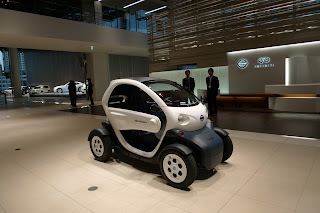Back in November 2008, I wrote a post about Nissan's new Cube, a car that I really do like. However, it seems that it's too "Japanese" for the taste of Europeans. Only 686 Cubes have been sold during 2010 in UK, far below the target of 2000 units/year. This year, during the first nine months, 251 have been sold. In the Netherlands, sales so far this year are a dismal 107 units.
The current generation is the third one and in Japan the model has sold over 1 million units since its introduction in 1998. In terms of the US market, sales are hovering at a decent 20,000 units/year.
So, it's not hard to imagine that Nissan is seriously considering to axe the Cube from Europe for good.
--------------------------------------------------------------
Original post

Including its supporting industries and ranging from engine manufacture to creating the interfaces between cars and people, the auto industry is involved in a very broad swathe of manufacturing, and it is a direct player in the effort to reduce carbon emissions. Japan is one of the world's top manufacturers in the industry, with eight different car makers and a home market where the car has become a familiar tool and an integral part of day-to-day life.
The most straightforward way to reduce the impact of cars on the environment is to make smaller cars. Simplicity is the starting point for Japanese aesthetics, and Japan has a distinct category of mini-vehicles—also known as light cars, kei cars, or micro-cars.
Japanese culture has made huge strides in Europe and US over the past decade: manga, anime, Evos, WRXs and GT-Rs, sushi. But what about Japanese car design and, in particular, Japan's peculiar fascination with the car as a box? Space, utility and all the simple logic of a packing crate were some of the defining factors behind the creation. That and the ability to carry family and/or friends around in a roomy, comfy, five/seven seat cabin.
The Cube was conceived around the concept of 'my room'. Spend any time in Japan and you find you never really have enough space, whether at home, on the tube, in shops, on the street, wherever.






























